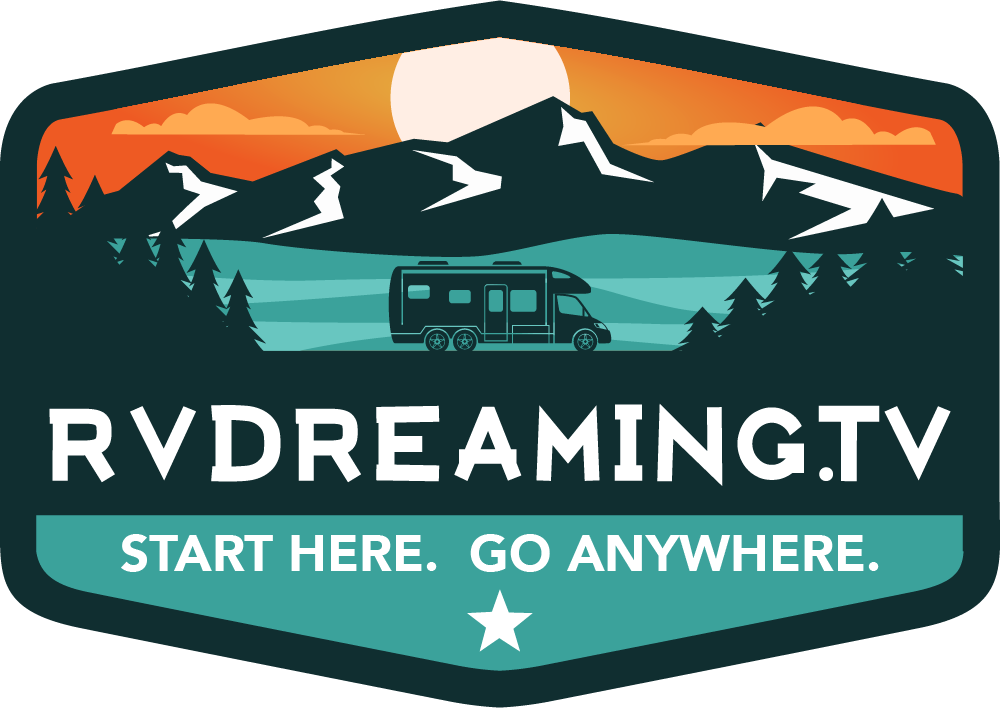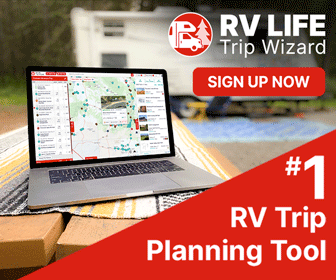
Full-time RV living can be an exciting and cost-effective way to travel and see the country. But How much money do you need to live full-time in an RV?
But before you hit the road, it’s important to carefully consider the costs involved. In this article, we’ll cover everything you need to know about how much to budget for living full-time in an RV.
We’ll cover the cost of buying an RV, upkeep, repair, and insurance cost. We will cover how much you might spend on fuel, which is usually your biggest expense.
We’ll also provide tips on how to save money on the road and what to expect when it comes to healthcare, state taxes, and other expenses.
Plus, we’ll give you advice on how to minimize costs by downsizing and getting rid of your clutter, and how to balance the costs and benefits of full-time RV living.
KEY TAKEAWAYS
- Full-time RV living can be a cost-effective way to travel and see the country. It is important to carefully consider the costs and benefits before making the decision to become a full-time RVer.
- To save money while living full-time in an RV, you may want to consider buying a smaller, more fuel-efficient RV. Minimizing campground fees by staying at cheaper or less popular campgrounds, downsizing and selling your possessions.
- To prepare for unexpected expenses, create a budget that includes a cushion for these types of expenses. Regularly review and adjust your budget as needed. Also, consider buying roadside assistance or other insurance policies to help mitigate the cost of unexpected expenses.
- There is no wrong way to RV. How much money you need to live full-time in an RV is entirely up to you.
The cost of buying an RV:
The cost of an RV can vary widely depending on the size, type, and age of the vehicle. New RVs can cost anywhere from $10,000 to over $500,000, while used RVs may be much cheaper. When shopping for an RV, consider your budget, and the features, and luxury items you want. Also consider your intended use of the RV, city camping vs. off-roading? It is also a good idea to research different brands and models to find the best fit for your needs. Financing or leasing an RV can also add to the overall cost. Be sure to factor in these expenses as well.
Maintenance and repair expenses
Owning an RV can come with regular maintenance and repair expenses. These regular expenses include oil changes, tire rotations, and other routine upkeep. These expenses can add up over time, so it is important to budget for them in your overall costs. You may also need to budget for repairs or replacements of major components, such as the engine or appliances. To lessen maintenance and repair costs, consider buying a newer RV with a good warranty. You can also consider an older RV that has been well-maintained.
Insurance costs:
RV insurance can vary greatly based on the value and type of your RV, your driving record, and where you plan to travel. It is important to shop around and compare quotes from different insurance providers. Believe it or not, it is recommended to shop twice a year to find the best coverage for your needs and budget. RV insurance typically includes coverage for damages to the vehicle, liability for accidents, and personal belongings inside the RV. Some insurance policies may also offer additional coverage for roadside assistance, medical payments, or trip interruption.
Fuel costs
Fuel costs can be a significant expense for full-time RVers, especially if you plan to travel long distances. To save on fuel costs, you may want to consider buying a smaller, more fuel-efficient RV, or invest in fuel-saving devices or techniques. These may include fuel additives, aerodynamic towing mirrors, or a trailer hitch that reduces drag. You can also save on fuel costs by planning your route carefully to minimize backtracking and driving through hilly or mountainous terrain.
Campground fees and other camping costs
Campground fees can vary widely depending on the location, amenities, and season. Some campgrounds charge a flat rate per night, while others may have weekly or monthly rates. You may also need to budget for other camping expenses, such as firewood, ice, and park entrance fees. To save on campground fees, consider staying at cheaper, less popular campgrounds, or boondocking (camping without hookups) on public land. You can also save money by joining a camping club or purchasing an annual pass to a national park or other recreational areas
The cost of healthcare on the road
Healthcare can be a concern for full-time RVers, especially if you don’t have employer-sponsored health insurance. There are several options available to RVers, including private insurance, Medicare, and Medicaid. Private insurance may be the most comprehensive, but it can also be the most expensive. Medicare is an option for those over 65 or those with certain disabilities, while Medicaid is a low-cost or no-cost option for those with low income. You may also want to consider alternative healthcare options, such as telemedicine or joining a healthcare-sharing ministry.
The impact of state taxes on full-time RVers
The state you reside in can have a significant impact on your tax burden as a full-time RVer. Some states have no income tax, while others may have high sales taxes or property taxes. It is important to research the tax laws of the states you plan to visit or reside in to understand your tax obligations. Some states have a “snowbird” tax, which is a tax on individuals who spend a certain number of months in the state each year. To minimize your state tax burden, you may want to consider establishing residency in a state with lower taxes or no income tax. You may also be able to claim certain tax credits or deductions, such as the RV sales tax deduction or the state sales tax deduction for full-time RVers.
Dealing with unexpected expenses while living on the road
Unexpected expenses can arise when living in an RV, such as unforeseen vehicle repairs or medical emergencies. It is important to have an emergency fund set aside to cover these types of expenses. You may also want to consider purchasing roadside assistance or other insurance policies to help mitigate the cost of unexpected expenses. To prepare for unexpected expenses, you may want to create a budget that includes a cushion for these types of expenses, and regularly review and adjust your budget as needed.
Downsizing and minimizing expenses by decluttering and selling possessions
Downsizing your possessions can help minimize expenses while living in an RV. Consider selling or donating items you no longer need or use, and only keep the essentials. This can also help free up space and make it easier to live in a smaller, more compact space. To downsize effectively, start by making a list of your possessions and evaluating which items are necessary and which can be sold or donated. You can also consider hiring a professional organizer or downsizing expert to help you declutter and streamline your possessions.
Balancing the costs and benefits of full-time RV living
Full-time RV living can be a cost-effective way to travel and see the country, but it is important to carefully consider the costs and benefits before making the decision to become a full-time RVer. Make a budget and weigh the costs of RV living against the freedom and flexibility it offers. Consider the costs of owning and maintaining an RV, as well as the costs of campgrounds, fuel, and other expenses. Also, think about the benefits of RV living, such as the ability to travel and explore new places, the sense of community among other RVers, and the opportunity to live a simpler, more minimalist lifestyle.
Conclusion
In conclusion, full-time RV living can be a fulfilling and cost-effective way to travel and see the country.
If you haven’t figured it out yet, the amount of money you need to live full-time in an RV can vary widely. It is really up to you. Some do it for under $2,000 per month. Others spend way more. There is no wrong way to RV.
By carefully considering the costs and benefits, budgeting for expenses, and minimizing costs wherever possible, you can make the most of your full-time RV living experience.
Don’t forget to also prepare for unexpected expenses by setting aside an emergency fund and considering insurance options. With careful planning and a bit of flexibility, you can enjoy the freedom and flexibility of full-time RV living without breaking the bank.

















Trackbacks/Pingbacks